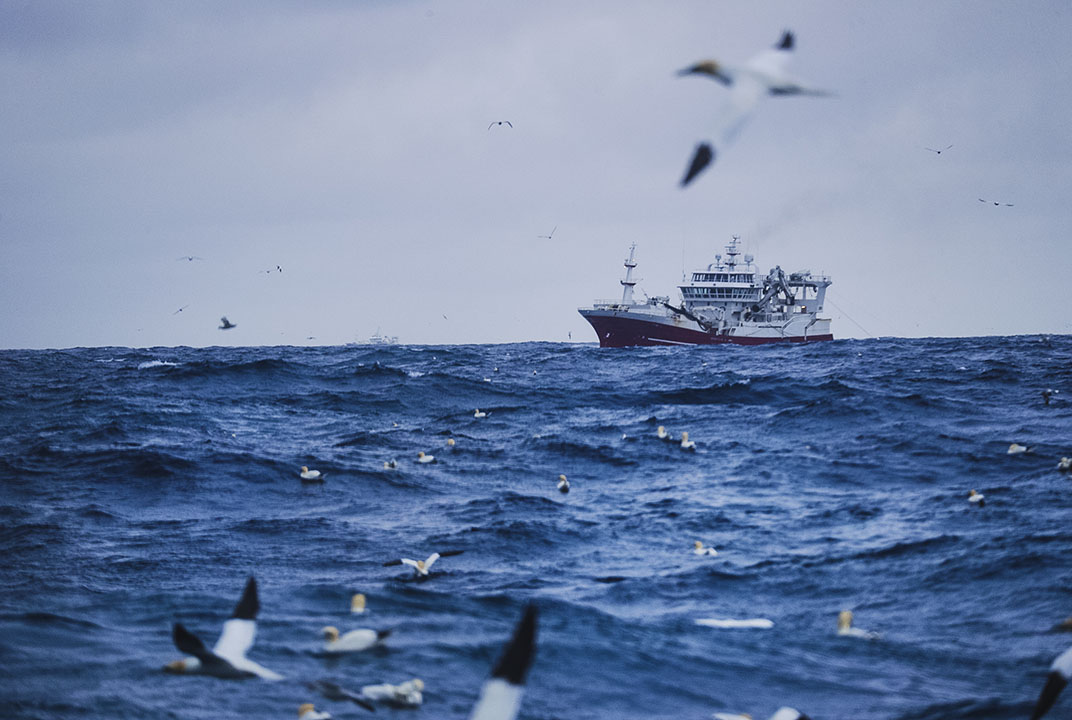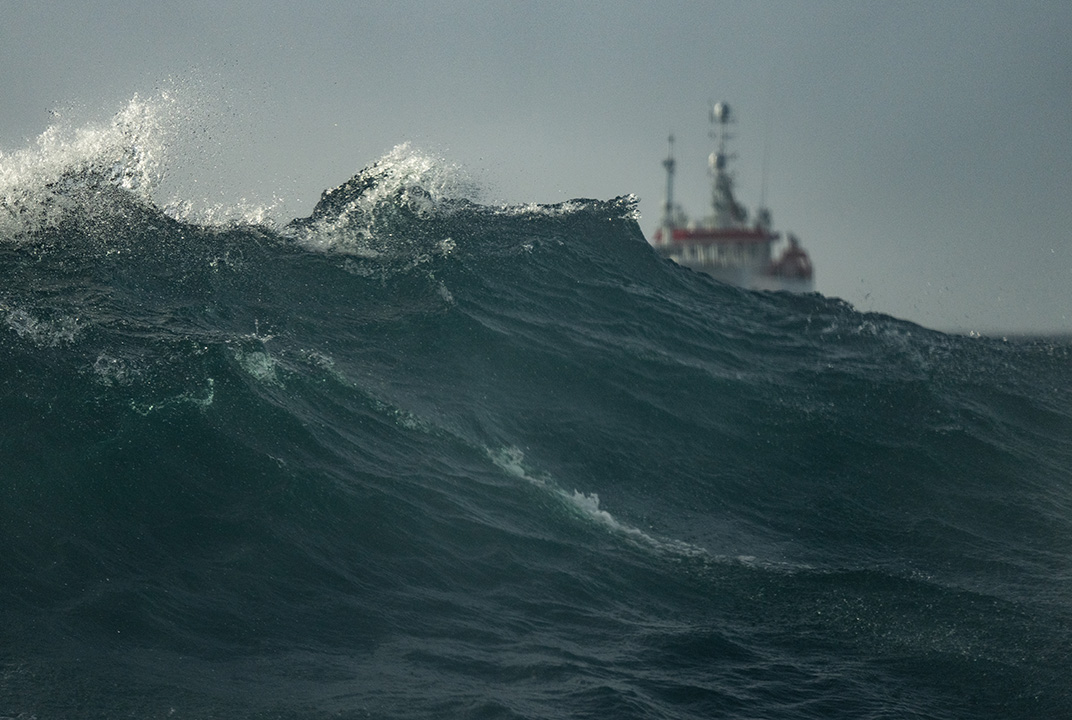Satellite technology saves lives, supports sustainable fishing in Indonesia
Three year project examined how satellite communications could support fishing communities in Indonesia; saving lives in distress, linking coastal families to relatives at sea and improving efficiency and sustainability through a dedicated Vessel Monitoring System.
Estimated that approximately 40 lives have been saved during the project.
Inmarsat, the world leader in global, mobile satellite communications, working with the Indonesian Ministry of Marine Affairs and Fisheries, its Department of Fisheries, the UK Space Agency and other partners today marked the successful closure of a three-year fisheries innovation project. Using low-cost, solar-powered satellite technology on smaller fishing vessels, the project aimed to enhance safety, efficiency, ship to shore contact and offer potential fish stock sustainability improvements.
With Indonesia’s long coastlines and more than 17,000 islands, it is difficult and costly to monitor vessel movements in the country’s waters. Independent analysis by consultancy Poseidon Aquatic Resource Management Limited, published today, showed that applying modern, satellite-based technology to smaller boats below 30 gross tonnage (30GT), not currently legally required, supported the local industry’s move towards safer, more sustainable and profitable operations. It also has potential to improve the ability of Indonesia’s Ministry of Marine Affairs and Fisheries (MMAF) to address illegal fishing.
With funding from the UK Space Agency and support from Inmarsat, this International Partnership Programme project was implemented to test the benefits and challenges of expanding the use of satellite-based Vessel Monitoring Systems (VMS). The tested satellite VMS system was expanded with various applications and is referred to as VMS+.
The purpose of the project was twofold. Firstly, to test whether the Inmarsat VMS+ could increase the safety of fishers at sea and improve the efficiency of their fishing operations, and so improve their livelihoods. Secondly, to provide the PSDKP (Indonesia’s Directorate General of Marine and Fisheries Resources Surveillance) with spatial tracking data for these smaller vessels and open the potential for e-reporting, such as via e-logbooks. Poseidon’s independent analysis found that both objectives have been achieved, with further opportunities for improvement also discovered.
Fishers were able to call for help during times of acute distress, linking back to Inmarsat’s founding mission of saving lives at sea. Poseidon estimates that 39 lives were saved during this project. It also delivered enhanced capabilities in both the fisheries monitoring centre as well as on its patrol vessel.
James Cemmell, Vice President, Government Engagement, Inmarsat, said: “The results of the project highlight how technology, training and respect for the expertise of fishers can together deliver enhanced safety, economic growth and environmental sustainability. These are priorities that Inmarsat shares with our partners around the world, including on this project with the Indonesian government and with the UK Space Agency, whose support was pivotal. There are people alive today with their families because of this project, which is the most important result in many ways.
“Together with the fishing community, government, technologists and specialists in fisheries management, we have prototyped a ‘Made-in-Indonesia’ satellite communications device for fishers. We have also ensured that pricing reflects the economics of the sector, which contributes to affordability. The results of the study have been independently verified and can be used to further modernise fisheries management in Indonesia. This can deliver the potential for more sustainable fish stocks, safer, better conditions for fishers, and improved economic growth from fisheries businesses.”
Dr Graham Turnock, CEO, UK Space Agency said: “This is a true reflection of what positive and prosperous partnerships can achieve. The Inmarsat, Indonesia project has aimed to benefit Indonesian fisheries by promoting inclusive and sustainable fishing practices, a huge step in encouraging global, responsible use of our ocean resources. Thanks to this project Indonesia will be able to improve the policing of illegal fishing and move the industry onto a more sustainable and profitable basis.”
The International Partnership Programme (IPP) is a £30 million a year programme run by the UK Space Agency. IPP focuses strongly on using the UK space sector’s research and innovation strengths to deliver a sustainable economic or societal benefit to emerging and developing economies around the world.
Notes to Editors
The consultancy Poseidon Aquatic Resource Management Limited has produced an in-depth, independent evaluation of the project, also published today here, which has found the following important results:
- Low cost satellite communications using solar power, ‘VMS+’, is viable for use on smaller fisher vessels 10-30GT. This is an essential finding – the digital divide currently faced by the crew of smaller vessels is not an inevitability for fishers.
- Fishers in the study were more likely to maintain and make use of the system if it provides them with a real and tangible benefit, namely low cost communications.
- With an experienced captain fish volumes and profit margins increase – the latter in the order of more than 10% in some instances. Vessel coordinators and port agents also showed dramatic savings, some at 40% due to logistical efficiencies offered.
FURTHER INFORMATION
About Inmarsat
Inmarsat is the world leader in global, mobile satellite communications. It owns and operates the world’s most diverse global portfolio of mobile telecommunications satellite networks, and holds a multi-layered, global spectrum portfolio, covering L-band, Ka-band and S-band, enabling unparalleled breadth and diversity in the solutions it provides. Inmarsat’s long-established global distribution network includes not only the world’s leading channel partners but also its own strong direct retail capabilities, enabling end to end customer service assurance.
The company has an unrivalled track record of operating the world’s most reliable global mobile satellite telecommunications networks, sustaining business and mission critical safety & operational applications for 40 years. It is also a major driving force behind technological innovation in mobile satellite communications, sustaining its leadership through a substantial investment and a powerful network of technology and manufacturing partners.
Inmarsat operates across a diversified portfolio of sectors with the financial resources to fund its business strategy and holds leading positions in the Maritime, Government, Aviation and Enterprise satcoms markets, operating consistently as a trusted, responsive and high-quality partner to its customers across the globe.
For further information, follow us on LinkedIn or on Twitter @InmarsatGlobal.
Media Enquiries:
Jonathan Sinnatt/Matthew Knowles
Corporate Communications
Tel: +44 (0)20 7728 1518/1355
press@inmarsat.com

